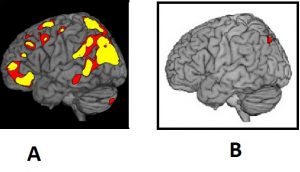Martin,
Your post made me realize that I have rarely, if ever, encountered any definition/explanation of the concept of time in Advaita. It set me off on a search of my library to try to find something. Apart from those books which index every word they contain (e.g. Krishnaswamy Iyer’s ‘Vedanta or the Science of Reality’ has 107 page-references to ‘time’), I could not find anything in any of my physical books. A search of my electronic database came up with very few references and the only scriptural one I could find is from Vivekachudamani 497:
sthulādibhāvā mayi kalpitā bhramā-dārōpitānusphuraṇena lōkaiḥ |
kāle yathā kalpakavatsarāya-ṇartvā dayō niṣkalanirvikalpe ||497||
John Grimes translates:
Sthūlādi = gross and so on; kalpita bhramāt = erroneously imagined; āropitānu-sphuraṇena = manifestation superimposed; kale = time; kalpaka = eons; vatsarāyaṇa = years and half-years; ṛtvādi = seasons and so on.
Continue reading
